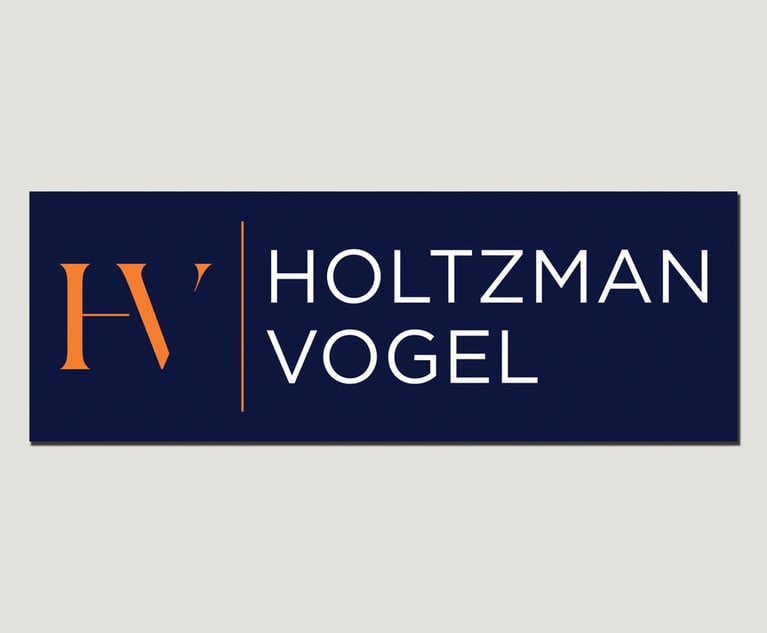 Photo: Joyseulay/Shutterstock.com
Photo: Joyseulay/Shutterstock.comDel. Trial Disputing Pandemic's Alleged Effect on Merger Cancelled After $1.43B Agreement
The agreement settles claims that were set to be addressed by the Delaware Court of Chancery in what would have been the first trial to consider COVID-19's effects on a company as a potential material adverse event that could warrant another company backing out of a deal.
July 16, 2020 at 06:07 PM
3 minute read
The original version of this story was published on Delaware Business Court Insider
Cybersecurity company Forescout Technologies Inc. and private equity company Advent International won't be going to trial this summer in Delaware, instead announcing Wednesday their closure of a $1.43 billion merger agreement.
The agreement settles claims that were set to be addressed by the Delaware Court of Chancery in what would have been the first trial to consider COVID-19′s effects on a company as a potential material adverse event that could warrant another company backing out of a deal.
In May, Advent International informed San Jose, California-based Forescout Technologies it would not be proceeding with the previously-agreed-upon $1.9 million deal, citing the impact of the pandemic on the company. Forescout Technologies maintained the deal didn't constitute a material adverse event as defined in the agreement and filed the case in May.
Delaware case law requires an event be durationally significant to qualify as a material adverse event. After the litigation was filed, Forescout Technologies preannounced second-quarter total revenue that was up 40 percent quarter-over-quarter at the midpoint of the announced revenue range.
Vice Chancellor Sam Glasscock III dismissed the case with prejudice once both companies agreed to the deal, a move eliminating the risk that could be presented by the third-party debt lenders involved in the deal — which Glasscock referred to as a Phyrric victory — without directly addressing claims of a material adverse event.
Lori Will of Wilson Sonsini Goodrich & Rosati, who represented Forescout Technologies, had previously told the court Advent International had tried to use the lack of debt as a defense to closing the merger but that Forescout Technologies was entitled to specific performance. In order to preserve the ability to seek specific performance, she argued, a decision would need to be made before the termination date listed in the merger agreement.
The case was expedited and the court had initially set an evidentiary hearing for June 2 and 3, which would have kept Forescout Technologies' ability to seek specific performance in place through June 6, the agreement's set termination date.
Rather than proceeding with a trial before June 6, the parties agreed to a temporary restraining order in the case, kicking into effect a backup termination date of Aug. 6. That temporary restraining order asked the court to prevent the parties from consummating the merger, causing a failed closing condition.
Given the additional time before the new termination date, the scheduled trial was moved to begin July 20.
During a July 10 phone conference, defense counsel expressed concern about traveling to Georgetown and sought to continue the trial, a request that Glasscock denied.
"In refusing to continue the trial, I noted that doing so would render the equitable relief sought by Forescout Technologies practically unattainable," Glasscock wrote in the Wednesday order.
Will said Thursday while the case didn't go on to address at trial whether COVID-19 damages constitute valid material adverse events, it's plausible cases addressing similar issues, many of which have been filed, could do so.
"I think it's going to be those types of scenarios where you're dealing with a company that's closing stores and people can't actually do business in the way that they used to anymore," Will said. "A lot of deals have just fallen apart entirely."
Kenneth Nachbar of Morris, Nichols, Arsht & Tunnell, who represented the affiliates through which Advent International was operating during the merger, did not immediately respond for comment Thursday.
|This content has been archived. It is available through our partners, LexisNexis® and Bloomberg Law.
To view this content, please continue to their sites.
Not a Lexis Subscriber?
Subscribe Now
Not a Bloomberg Law Subscriber?
Subscribe Now
NOT FOR REPRINT
© 2024 ALM Global, LLC, All Rights Reserved. Request academic re-use from www.copyright.com. All other uses, submit a request to [email protected]. For more information visit Asset & Logo Licensing.
You Might Like
View All
Pre-Internet High Court Ruling Hobbling Efforts to Keep Tech Giants from Using Below-Cost Pricing to Bury Rivals
6 minute read

As AI-Generated Fraud Rises, Financial Companies Face a Long Cybersecurity Battle

'A Never-Ending Nightmare': Apple Sued for Alleged Failure to Protect Child Sexual Abuse Survivors
Trending Stories
- 1Senate Confirms Last 2 of Biden's California Judicial Nominees
- 2Morrison & Foerster Doles Out Year-End and Special Bonuses, Raises Base Compensation for Associates
- 3Tom Girardi to Surrender to Federal Authorities on Jan. 7
- 4Husch Blackwell, Foley Among Law Firms Opening Southeast Offices This Year
- 5In Lawsuit, Ex-Google Employee Says Company’s Layoffs Targeted Parents and Others on Leave
Who Got The Work
Michael G. Bongiorno, Andrew Scott Dulberg and Elizabeth E. Driscoll from Wilmer Cutler Pickering Hale and Dorr have stepped in to represent Symbotic Inc., an A.I.-enabled technology platform that focuses on increasing supply chain efficiency, and other defendants in a pending shareholder derivative lawsuit. The case, filed Oct. 2 in Massachusetts District Court by the Brown Law Firm on behalf of Stephen Austen, accuses certain officers and directors of misleading investors in regard to Symbotic's potential for margin growth by failing to disclose that the company was not equipped to timely deploy its systems or manage expenses through project delays. The case, assigned to U.S. District Judge Nathaniel M. Gorton, is 1:24-cv-12522, Austen v. Cohen et al.
Who Got The Work
Edmund Polubinski and Marie Killmond of Davis Polk & Wardwell have entered appearances for data platform software development company MongoDB and other defendants in a pending shareholder derivative lawsuit. The action, filed Oct. 7 in New York Southern District Court by the Brown Law Firm, accuses the company's directors and/or officers of falsely expressing confidence in the company’s restructuring of its sales incentive plan and downplaying the severity of decreases in its upfront commitments. The case is 1:24-cv-07594, Roy v. Ittycheria et al.
Who Got The Work
Amy O. Bruchs and Kurt F. Ellison of Michael Best & Friedrich have entered appearances for Epic Systems Corp. in a pending employment discrimination lawsuit. The suit was filed Sept. 7 in Wisconsin Western District Court by Levine Eisberner LLC and Siri & Glimstad on behalf of a project manager who claims that he was wrongfully terminated after applying for a religious exemption to the defendant's COVID-19 vaccine mandate. The case, assigned to U.S. Magistrate Judge Anita Marie Boor, is 3:24-cv-00630, Secker, Nathan v. Epic Systems Corporation.
Who Got The Work
David X. Sullivan, Thomas J. Finn and Gregory A. Hall from McCarter & English have entered appearances for Sunrun Installation Services in a pending civil rights lawsuit. The complaint was filed Sept. 4 in Connecticut District Court by attorney Robert M. Berke on behalf of former employee George Edward Steins, who was arrested and charged with employing an unregistered home improvement salesperson. The complaint alleges that had Sunrun informed the Connecticut Department of Consumer Protection that the plaintiff's employment had ended in 2017 and that he no longer held Sunrun's home improvement contractor license, he would not have been hit with charges, which were dismissed in May 2024. The case, assigned to U.S. District Judge Jeffrey A. Meyer, is 3:24-cv-01423, Steins v. Sunrun, Inc. et al.
Who Got The Work
Greenberg Traurig shareholder Joshua L. Raskin has entered an appearance for boohoo.com UK Ltd. in a pending patent infringement lawsuit. The suit, filed Sept. 3 in Texas Eastern District Court by Rozier Hardt McDonough on behalf of Alto Dynamics, asserts five patents related to an online shopping platform. The case, assigned to U.S. District Judge Rodney Gilstrap, is 2:24-cv-00719, Alto Dynamics, LLC v. boohoo.com UK Limited.
Featured Firms
Law Offices of Gary Martin Hays & Associates, P.C.
(470) 294-1674
Law Offices of Mark E. Salomone
(857) 444-6468
Smith & Hassler
(713) 739-1250








